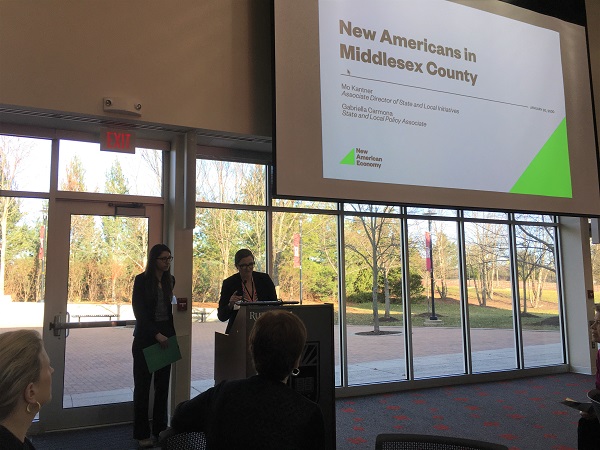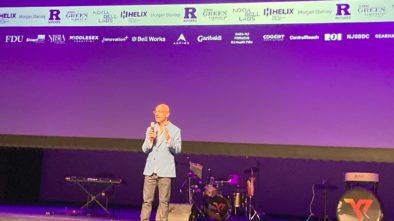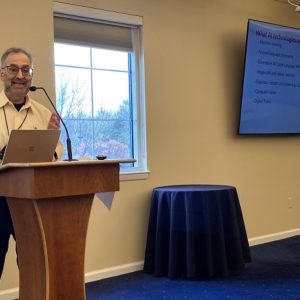Immigration Essential to the STEM Economy, Speakers Say at Middlesex County Regional Chamber of Commerce Meeting
Despite making up 34.5 percent of Middlesex County’s population, immigrants accounted for 64.4 percent of the county’s science, technology, engineering, and math (STEM) workers and 49 percent of business owners in 2018.
This fact came from a report by New American Economy (New York) that was discussed during the Middlesex County Regional Chamber of Commerce meeting on January 30, held at Rutgers University’s Visitor Center .
The audience — comprised of business leaders and educators, among others — also learned that without the immigrant population, Middlesex County’s population would have declined by 2.7 percent that same year.
The report, which was published in partnership with the Middlesex County Regional Chamber of Commerce and Einstein’s Alley (Plainsboro), a nonprofit economic development organization, highlights the economic impact that immigrants in Middlesex County have had on their community, such as contributing $2.7 billion to federal taxes and $1.4 billion to state and local taxes in 2018.
New American Economy
In her introductory remarks, Katherine Kish, executive director of Einstein’s Alley, noted that New American Economy is a bipartisan research and advocacy organization.
The organization works to promote smart federal, state and local immigration policies that will help us grow our economy, she said, focusing on how important immigrants are to economic growth. For instance, it does research using data to showcase immigrant contributions.
Middlesex County has recently won a Gateways for Growth Challenge grant offered by the organization that allows local communities to receive a combination of research, technical assistance and matching grants. Only 14 such grants were awarded.
The research results were presented at the meeting by Mo Kanter and Gabriella Carmona, both of New American Economy.
They also noted that, five or six years ago, the founders of that organization decided that there wasn’t enough leadership on immigration coming from the federal government, so they decided to start a nonprofit that would push for policies to make local communities better at integrating immigrants.
New Jersey Business Immigration Coalition
Nicholas Montalto, a member of the Einstein’s Alley Board of Trustees, spoke about the recent formation of the New Jersey Business Immigration Coalition, spearheaded by Einstein’s Alley, which brings together New Jersey businesses, institutions of higher education and economic development leaders who are dedicated to promoting sensible immigration reform that supports economic growth.
The coalition is eager to get more participants to promote its agenda throughout the state, and it asks that any interested companies or individuals contact it.
The keynote speaker for the event was James W. Hughes, distinguished university professor and former dean of the Edward J Bloustein School of Planning and Public Policy, at Rutgers University, who discussed the overall economic outlook for New Jersey.
He mentioned some metrics, such as the fact that New Jersey has the second-highest median household income in the contiguous United States and that, while our median income is 23 percent higher than the average, our housing costs are 58 percent higher. Yet New Jersey currently ranks third among all the states in the percentage of foreign-born residents. “We have a clear global diversity, which is a key advantage in a global economy,” said Hughes.
He also noted that New Jerseyans use public transit more than the residents of most states, but that our transit infrastructure now requires years of investment, after having gone through years of neglect. He also stated that New Jersey is third in the nation in the length of commutes. Moreover, the state continues to be the most densely populated in America, “a position we’ve held for 50 years.” Despite this density, however, New Jersey has a higher percentage of land covered in forests than do California or Alaska.
New Jersey, as well as the whole U.S., has been expanding economically since June 2009, he said. We are still in the expansion phase of the economic cycle, and that is “the economic surprise of the 21st century.” The rate of economic growth is slowing, but the economy is still moving forward, he told the audience.




